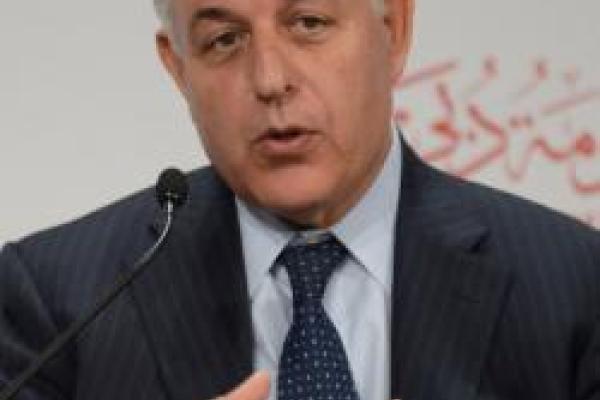
Mustapha Nabli, former governor of the Central Bank of Tunisia, will speak about "How to Transform the Arab Spring into an Economic Spring: The Case of Tunisia" at noon Tuesday (1/7) at the Mershon Center for International Security Studies, 1501 Neil Ave. Nabli, a prominent economist and possible presidential candidate in Tunisia, will provide a broad perspective and a comprehensive view about the origins and causes of the Arab Spring. Read more and register à https://go.osu.edu/nablim
Special Event
Mustapha Nabli
“How to Transform the Arab Spring into an Economic Spring: The Case of Tunisia”
Mustapha Nabli is a Tunisian economist who has served as governor of the Central Bank of Tunisia from the revolution of 2011 to July 2012. He received the Prize of the President of the Republic in June 1969 for his bachelor in economics and his degree from Tunis Ecole Nationale d’ Administration. He received his masters and doctorate in economics from the University of California, Los Angeles. Nabli is professor of economics at the Faculté de Droit et des Sciences Politiques et Economiques de Tunis. In addition, he is a visiting professor at various universities in Canada, the United State, Belgium and France.
He has served as chairman of the Tunis Stock Exchange (1988-90), minister of economic development and minister of planning and regional development of Tunisia (1990-95), member of the U.N. Secretary General High Level Group on "Development Strategy and Management of the Market Economy" (1994-96), senior economic advisor with the World Bank (1997), regional chief economist and director of the Social and Economic Development Group for the Middle East and North Africa (1999-2010), and senior adviser to the World Bank chief economist (2010-11). Most recently, Nabli served as the governor of the Central Bank of Tunisia.
Abstract
In this talk, Nabli will provide a broad perspective and a comprehensive view about the origins and causes of the New Arab Awakening. He suggests that in order to understand the Arab Spring or New Arab Awakening, we need to place it in the long historical context of the political and economic developments at least since the 1950s or the post-independence era. A review of the various stages of the political, social and economic experience will be presented with its successes and failures. Nabli also suggests using the analogy with financial crises and distinguish between vulnerabilities and immediate triggers in order to understand the recent events and how they varied across countries including contagion and different outcomes.
This event is co-sponsored by the Mershon Center for International Security Studies, Middle East Studies Center, Center for African Studies, Department of Near East Languages and Cultures, and John Glenn School for Public Affairs.
